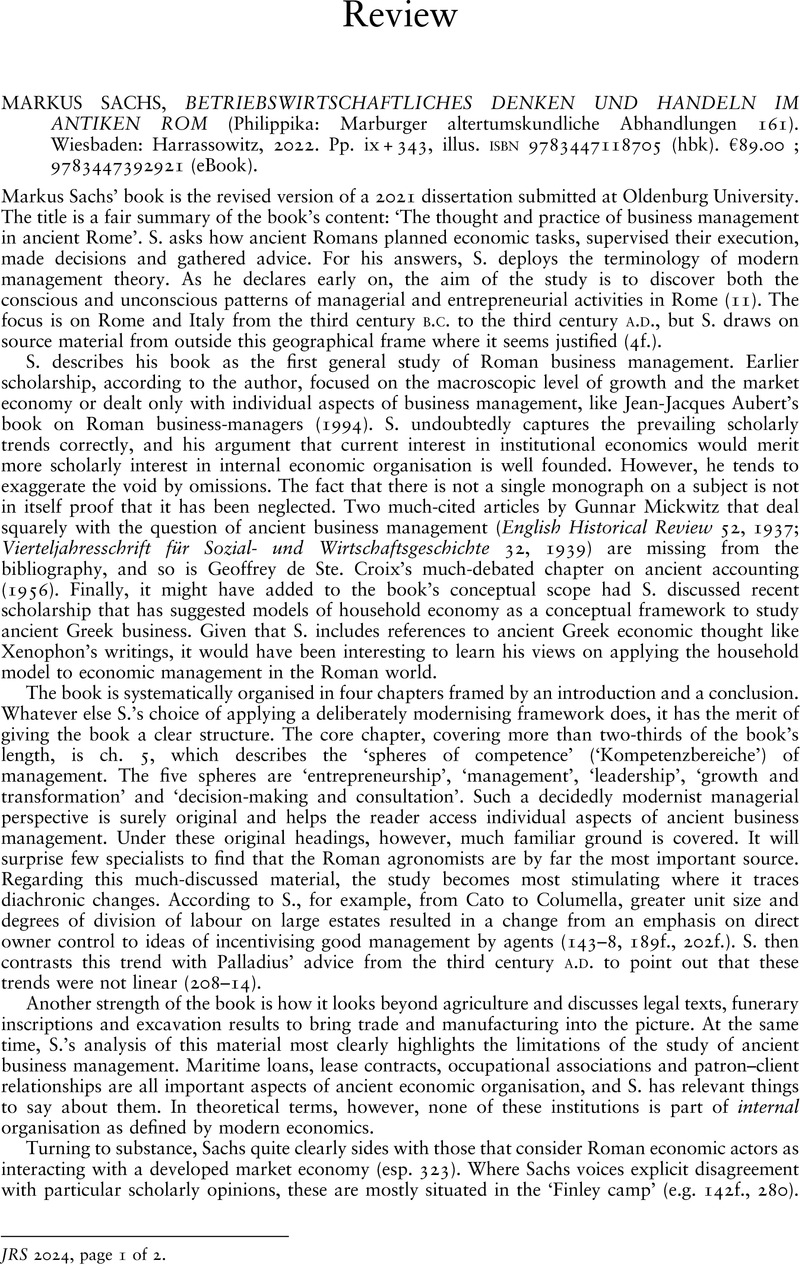No CrossRef data available.
Article contents
MARKUS SACHS, BETRIEBSWIRTSCHAFTLICHES DENKEN UND HANDELN IM ANTIKEN ROM (Philippika: Marburger altertumskundliche Abhandlungen 161). Wiesbaden: Harrassowitz, 2022. Pp. ix + 343, illus. isbn 9783447118705 (hbk). €89.00 ; 9783447392921 (eBook).
Review products
MARKUS SACHS, BETRIEBSWIRTSCHAFTLICHES DENKEN UND HANDELN IM ANTIKEN ROM (Philippika: Marburger altertumskundliche Abhandlungen 161). Wiesbaden: Harrassowitz, 2022. Pp. ix + 343, illus. isbn 9783447118705 (hbk). €89.00 ; 9783447392921 (eBook).
Published online by Cambridge University Press: 16 April 2024
Abstract
An abstract is not available for this content so a preview has been provided. Please use the Get access link above for information on how to access this content.

- Type
- Reviews
- Information
- Copyright
- Copyright © The Author(s), 2024. Published by Cambridge University Press on behalf of The Society for the Promotion of Roman Studies


